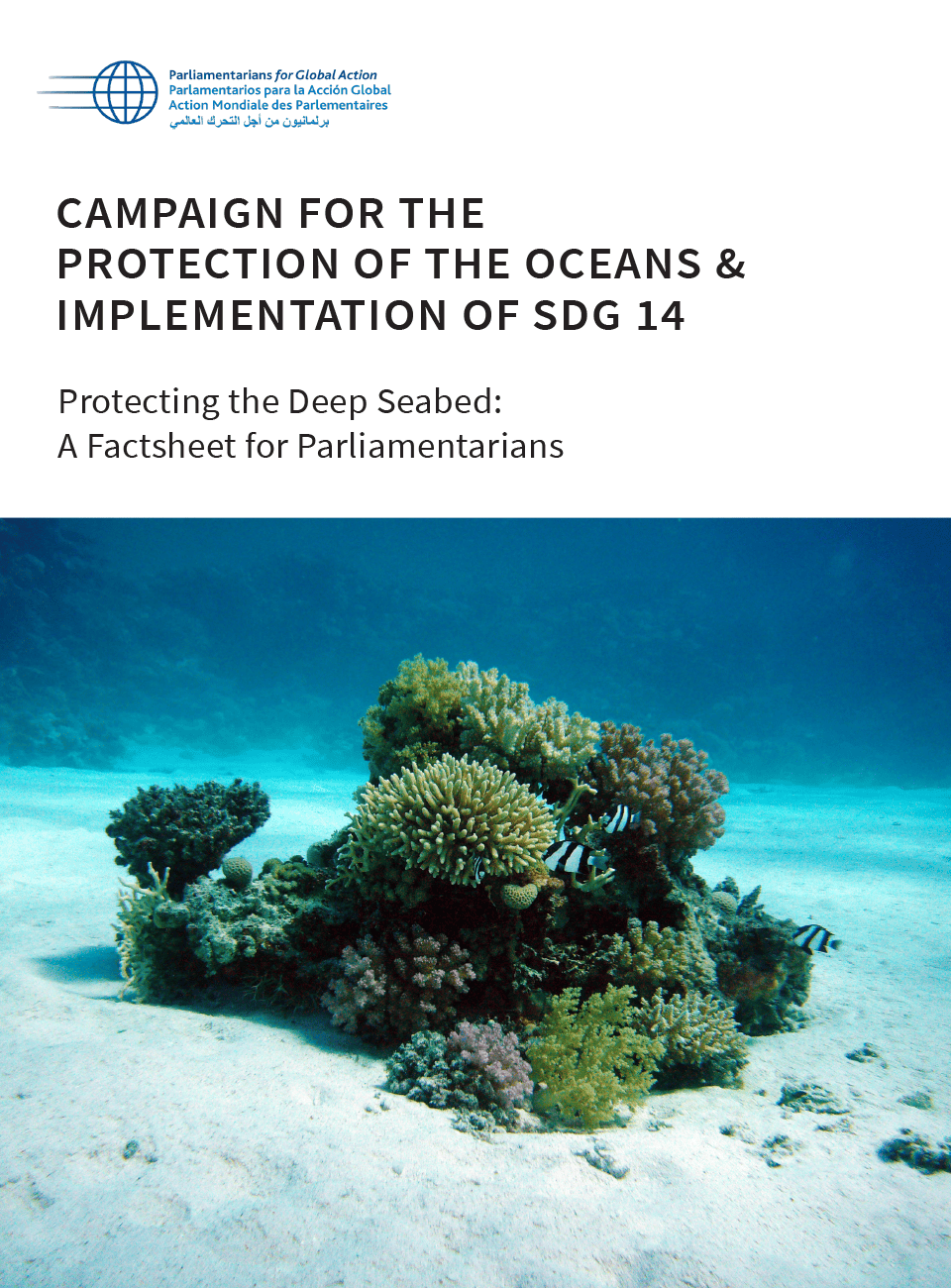Hosted by the Permanent Mission of Liechtenstein to the UN and in partnership with the Deep Sea Conservation Coalition (DSCC), on 3 June 2022, PGA organized a Strategic Roundtable with Parliamentarians on the Protection of the Deep Seabed – an urgent topic considering the responsible international regulatory body, the International Seabed Authority (ISA), is undergoing negotiations ahead of its July 2023 deadline to develop and adopt regulations that will begin deep seabed mining (DSM) exploitation.
As recalled by Mr. Matthew Gianni, Co-founder and political and policy advisor of DSCC, scientists are very concerned by the prospect of deep seabed mining. The deep seabed is already under stress because of related impacts from climate change, pollution and marine litter; deep seabed mining likely represents a further threat, with scientists urging extreme caution considering the inevitable and irreversible biodiversity loss if DSM is allowed. Though more research is needed to understand the rich deep sea biodiversity, Mr. Gianni noted the existing science clearly indicates that animals in these areas may take millions of years to recover, with even partial recovery of animals in surrounding sediment areas taking hundreds to thousands of years.
A growing number of stakeholders - from parliamentarians to scientists and private companies - are calling for the adoption of a moratorium on DSM by the ISA, as a precautionary measure that should prevail, unless and until sufficient scientific research has been conducted to assess whether DSM can be done without damage to this common heritage of humankind, and until the ISA Member States have undertaken organizational reforms to ensure transparency in the ISA’s operations.
Mr. Gianni further noted that under the UN Convention on the Law of the Sea (UNCLOS), the ISA is obligated to act on behalf and for the benefit of humankind as a whole. Additional concerns, however, lie in the disproportionate decision-making power within the ISA, and the costs and benefits amongst ISA Member States.
This discussion, therefore, represented an opportunity for parliamentarians to explore the positions of their governments on the protection of the deep seabed, calling for their respective governments to increase their level of involvement and to be represented at the negotiation table during the next ISA meeting in August 2022. Hon. Ralph Regenvanu, MP (Vanuatu) shared the initiative of the newly-launched Pacific Parliamentarians’ Alliance on Deep Sea Mining, which he Chairs, to bring together Pacific States for a regional approach to the call for a moratorium on deep seabed mining, aiming also to provide a regional perspective on the issue.
Highlighting their commitment to protect the environment as a whole, Ambassador Gina Guillen-Grillo (Costa Rica Ambassador to Jamaica and Permanent Representative to the ISA), and Ambassador Constanza Figueroa (Chile Ambassador to Jamaica and Permanent Representative to the ISA) pointed to the need for more States to attend ISA meetings, which would increase the level of transparency in the ISA decision-making process, and allow more voices in favour of a moratorium, or a temporary one, to express their positions.
In order to guide parliamentarians willing to take action and engage with their respective governments on this topic, PGA Secretary-General, Dr. David Donat Cattin, noted the practicality of PGA’s newly created Factsheet for Parliamentarians: Timeline for Protecting the Deep Seabed which provides a number of options for actions MPs can take to promote the protection of deep seabed, and to ensure the safeguarding of this common heritage of humanity remains a priority.
A factsheet on efforts by the International Seabed Authority and others to protect the deep seabed from mining from further environmental degradation. The deep sea, the world’s largest biome, accounts for up to 90 percent of the marine environment. Though the deep sea is one of the most inaccessible areas on Earth, it plays a crucial role in regulating the planet including through the absorption and storage of immense quantities of the carbon dioxide released into the air by human activity. The scientific community, civil society, fishing industry, and politicians have raised concerns that the risks associated with further damaging the deep-sea outweigh any potential net benefits for
humankind. Many experts urge extreme caution, considering the inevitable and likely irreversible biodiversity loss if deep-sea mining is permitted.Publication

Protecting the Deep Seabed
Description
PDF(s)
Additional Details



